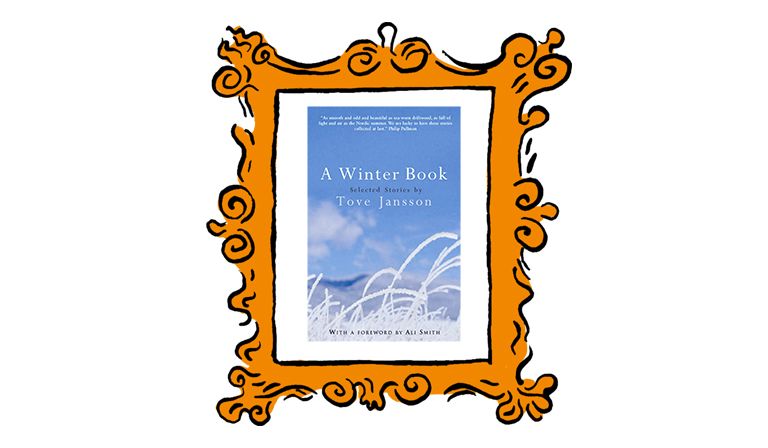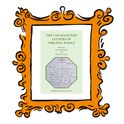Christmas may be over, but the cultural recommendations never stop. Here is the third special seasonal edition of The Culture newsletter, full of wintery recs from members of Prospect’s friends and family group—perfect, in fact, for these slumberous days before the new year. Speaking of which, the next edition of The Culture will land in your inbox on 2nd January; at which point, something like normal service will resume. See you on the other side.
Track of the Cat
It’s Robert Mitchum hunting a cat. And that’s it, really. Or is it? This is a big cat, the sort that could—and, indeed, does—kill a man. It might even be a supernatural cat, given how it’s never seen but always present. It even spooks Mitchum’s bullying rancher, Curt, as he—and the entire mountainous landscape—gets lost in the snow. But the real action is on the ranch itself, as Curt’s family deconstructs and then reconstructs itself in his absence. Director William A Wellman may have made better films than Track of the Cat (1954), but not many—and certainly none weirder.
Peter Hoskin, books & culture editor
A Winter Book
Tove Jansson’s much-loved Moomins hibernate all winter, but the characters in A Winter Book, a collection of the Finnish polymath’s selected stories, are very much awake. The little girl in The Iceberg is my favourite. Her family has just moved to the country and the early appearance of an iceberg in the bay delights her. She creeps out, late at night, to look at it. She longs to jump across the deep black water “just the wrong distance between us” into the girl-shaped grotto on one of the iceberg’s sides—but doesn’t dare. So she throws her torch instead, and the grotto becomes “an illuminated aquarium at night, the manger at Bethlehem or the biggest green emerald in the world!” And aren’t we all, somehow, that little girl, standing on the edge of the shore, wishing we were brave enough to sail away on a floating island?
Susie Mesure, critic
Jeremy and Regina’s/Bright Grey
In the days between Christmas and Hogmanay, there is just one thing I know I must do. No matter how the wind whips, I’ll head down to the sea, to march along the sands and blow away the cobwebs of the old year. A set of tunes that captures the feeling of wild weather, fleeting light, the warmth to which you return and the dancing to come is Jeremy and Regina’s/Bright Grey, performed by the Orcadian band FARA in their early years. Wrap up, everyone.
Ellen Halliday, deputy editor
The Children of Green Knowe
Midwinter is deep time: its dark, still days reconnect us to home and the cycles of life and death—the themes at the heart of the BBC’s The Children of Green Knowe (1986). Toseland (Alec Christie) is a lonely, rootless schoolboy sent to spend Christmas at his ancestral home. Arriving at Green Knowe during a flood, he is enchanted by his great-grandmother’s (Daphne Oxenford) tales of his ancestors, three children who died during the great plague. Slowly, he encounters the children’s ghosts. This is bewitching television, faithful to Lucy Boston’s book, its ambition evident both in its magical set pieces and its willingness to be quiet.
Peter Williams, managing editor
Small Things Like These
Claire Keegan’s micro-novel is set among the practicalities of preparing for Christmas: present shopping and keeping the home fires burning. But it is also about the festival’s deepest meaning: light emerging from the dark. Drawing redemptive lessons from his own ostracised childhood, coal merchant Bill Furlong extends a hand of love to a captive of one of Ireland’s Magdalene laundries. It is short enough to read on a dark afternoon on the sofa with a Christmas toddy, or— if you’re looking to escape the festive home—is now out in adapted form at the cinema.
Tom Clark, contributing editor
Ten Bob in Winter
Ten Bob in Winter (1963), by Jamaica-born Lloyd Reckord, is set in the frigid season. A whiff of peasouper hangs over London. Here’s a young black undergrad, inadequately wrapped up in an Aldermaston-era duffle coat, his money all spent on girls and gambling. He can’t even land a parttime cleaning job. A white pal lends him some money, but then a different black geezer, a scruffy musician, tries to hit him up for a loan. Is Christmas really a season for giving? As he paces the pavement, shivering and waiting to be repaid, the only heat comes from the Joe Harriott Quintet’s hard-bop soundtrack. What an odd experiment this is—a nouvelle vague take on Sam Selvon’s The Lonely Londoners.
Sukhdev Sandhu, film critic
Lois the Witch
Having never properly experienced a Northern Hemisphere winter (I’ve touched snow only once, in New York) my ideas of a “wintery” life come mostly from film and literature, and in Elizabeth Gaskell’s 1859 short story “Lois the Witch” there is a suffocatingly claustrophobic retelling of the Salem Witch Trials that has become synonymous with my imaginings of that long dark and cold. One particular line—“Salem was snowed in and left to prey upon itself”—has always stuck with me, and inspired my own writing.
Tilly Lawless, Lives columnist
Sometimes He’s in My Dreams
The American harpist Mary Lattimore collaborated with Slowdive’s Neil Halstead for her 2020 album Silver Ladders—the pair recording in Halstead’s studio on a disused airfield in Cornwall. Out of those sessions came this track, an improvisation that grew into something wondrous: Lattimore’s harp looped and crystalline over Halstead’s filigree guitar lines. It’s not technically about winter, but I defy you to find a track that sounds more like falling snow.
Laura Barton, pop critic
Metropolitan
“I don’t read novels. I prefer good literary criticism. That way you get both the novelists’ ideas as well as the critics’ thinking.” That’s the kind of delightfully idiotic thing you can say as an ambitious, overeducated, overprivileged adolescent—a member of the UHB, or “urban haute-bourgeoisie”, as the characters in Whit Stillman’s 1990 film Metropolitan term themselves. Metropolitan takes place between Christmas and new year—”orgy week” for the UHB. For those lazy, leftovers-filled days when it feels like you’re waiting for real life to restart, it’s funny and sweet and just the right level of mean.
Emily Lawford, commissioning editor
Eastbound
Readers seeking a winter chill might like Eastbound by Maylis de Kerangal. In this short novel, Aliocha—a young Russian conscript aboard a train to Siberia—tries to escape his regiment. As he hides from the authorities, he seeks the help of Hélène, a middle-aged French passenger fleeing her past.
Daniel Rey, critic
The Bishop’s Wife
The Bishop’s Wife (1947) stars Cary Grant as an angel sent to save a bishop’s marriage. The bishop (David Niven) is so obsessed with building a cathedral that he neglects his wife Laura (Loretta Young). This being the movies, Laura begins to fall in love with Cary Grant (sorry, the angel) and the bishop must decide between the cathedral spires of aspiration or of love.
Henry Oliver, critic
Like Love
In a year overshadowed by war, Maggie Nelson’s Like Love has been a lifeline for me. A compilation of critical essays, lyrical tributes and heartfelt—sometimes heartbreaking—dialogues with lifelong friends and literary idols: Carolee Schneeman’s razor-sharp take down of the contemporary art market butts up against a sparky back-and-forth with Wayne Kostenbaum; elegies to Herve Guibert (a close friend and muse of Michel Foucault) and Lhasa de Sela nestle up to a meditation on Judith Butler’s Precarious Life, an essay interweaving the violent legacies of post-9/11 counter-terrorism with the speculative loss of a loved one. I’m praying Nelson’s writing—caring and clever, endlessly instructive—will steer me unscathed through the Christmas and new year chaos.
Arjuna Keshvani-Ham, critic












